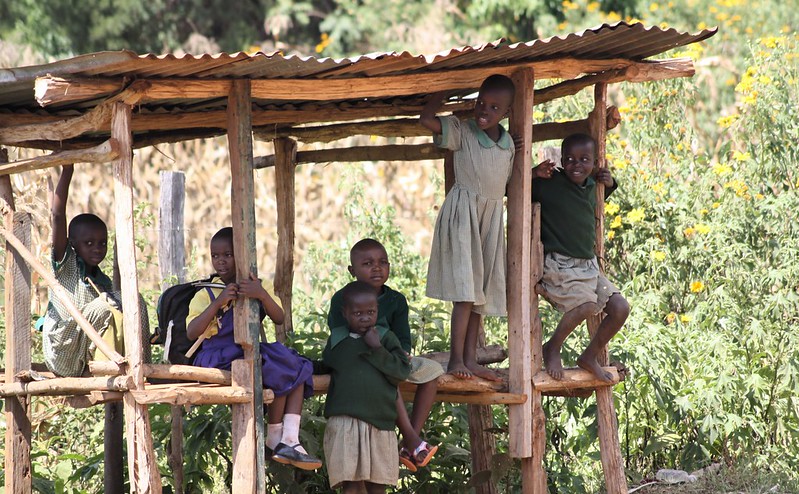Mercy Rescue Trust: Foster to Forever Family
 Worldwide, 16.6 million children under 18 have lost one or both parents to HIV; 90% of these orphans live in sub-Saharan Africa. In 2019, about 53 million children in this region had lost one or both parents. According to UNICEF, Kenya alone has approximately 2.08 million orphans. Previous estimates reveal that about 3.6 million children in Kenya are orphaned or vulnerable, comprising nearly one-fifth of the country’s population under 18 years old. To combat this, Mercy Rescue Trust, a rescue center based in Kitale, Kenya, finds homes for abandoned babies and young children. The organization aims to protect children in vulnerable situations by providing medical care, shelter and long-term support.
Worldwide, 16.6 million children under 18 have lost one or both parents to HIV; 90% of these orphans live in sub-Saharan Africa. In 2019, about 53 million children in this region had lost one or both parents. According to UNICEF, Kenya alone has approximately 2.08 million orphans. Previous estimates reveal that about 3.6 million children in Kenya are orphaned or vulnerable, comprising nearly one-fifth of the country’s population under 18 years old. To combat this, Mercy Rescue Trust, a rescue center based in Kitale, Kenya, finds homes for abandoned babies and young children. The organization aims to protect children in vulnerable situations by providing medical care, shelter and long-term support.
Mercy Rescue Trust’s Mission in Kenya
Financial challenges and family instability in Kenya have led to severe neglect and abandonment of many infants. With limited social support systems, children often endure harmful conditions, suffering from malnutrition and poor physical and emotional health. Rescuers find many in life-threatening situations and bring them to Mercy Rescue Trust, where doctors conduct comprehensive health screenings to detect diseases or health risks caused by exposure to unsafe environments. Once medically stable, children enter temporary foster care with local families who provide a nurturing environment until a permanent home becomes available. If a child requires emergency medical care, doctors oversee their treatment until they recover.
From Rescue to Reunification and Adoption
After rescuing an infant, Mercy Rescue Trust searches for biological family members and prioritizes reunification whenever possible. To support successful reintegration, the organization provides regular meals and financial assistance for education, increasing the child’s chances of thriving in their home. If reunification does not work, the child remains in temporary foster care while Mercy Rescue Trust arranges a permanent, loving home. The adoption process follows strict guidelines to ensure each child finds a secure and nurturing environment. Social workers follow up regularly to monitor the child’s development and well-being after placement.
The Role of Foster Families in Child Welfare
Mercy Rescue Trust emphasizes a family-centered approach by placing children in local, family-based foster care rather than institutional orphanages. Foster families, often volunteers, provide infants with a stable home environment during this transitional period. Since its inception, Mercy Rescue Trust has placed more than 400 children in homes, including 269 with local foster families and reunited 114 with their biological families. Foster care gives infants the emotional security needed to rebuild trust and recover from trauma. Living in a home-like environment allows them to develop attachments, experience daily routines and build a sense of stability, making their transition to a permanent family much smoother.
Emergency Care and Community Support
Mercy Rescue Trust operates a 24-hour emergency care center where medical professionals provide immediate care to rescued infants. These services depend on donations that fund food, medical care and education programs for children in need. The organization also welcomes volunteers, photographers and supporters to help raise awareness and expand outreach efforts.
Looking Ahead
Mercy Rescue Trust continues to rescue, protect and advocate for vulnerable children, ensuring they receive the care, stability and opportunities they deserve. Furthermore, by prioritizing family-based care, education and long-term support, the organization is working to break the cycle of abandonment and poverty, providing children with a path to a brighter future.
– Jennifer Cermak
Jennifer is based in Ontario, Canada and focuses on Good News for The Borgen Project.
Photo: Flickr
